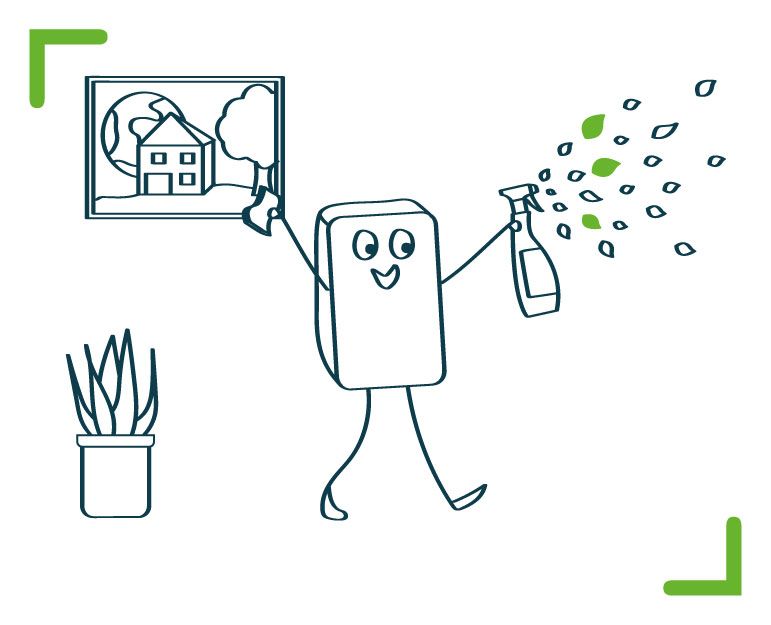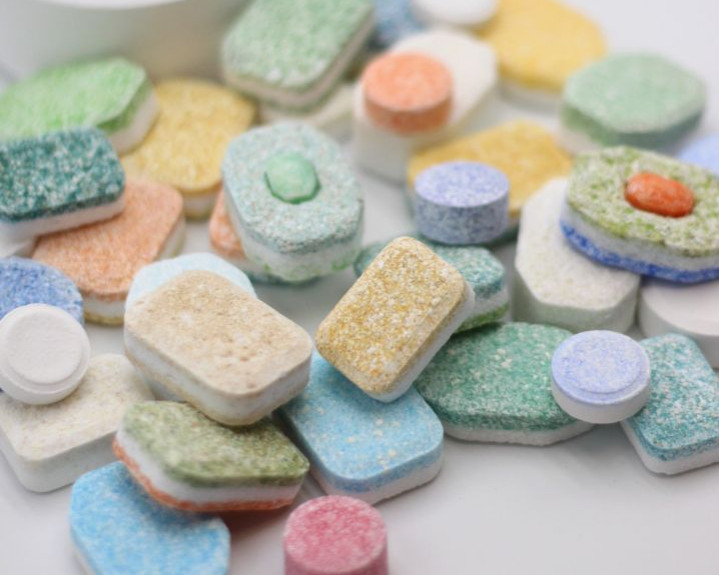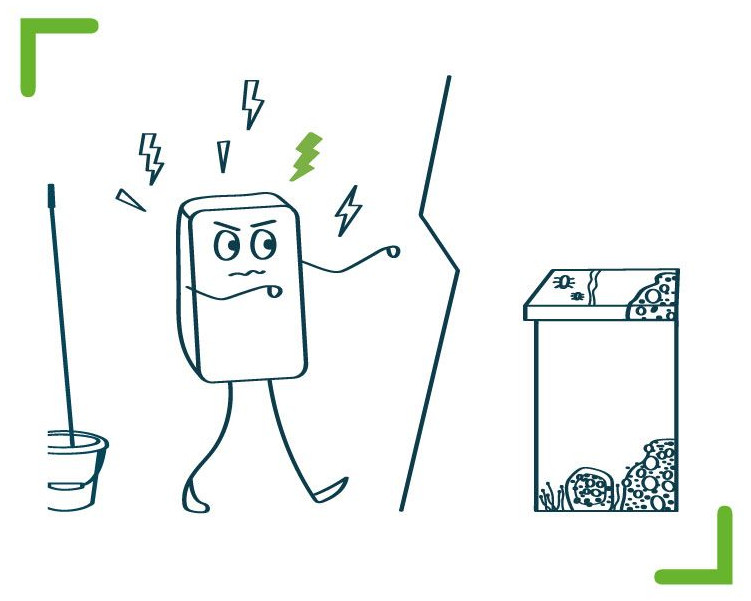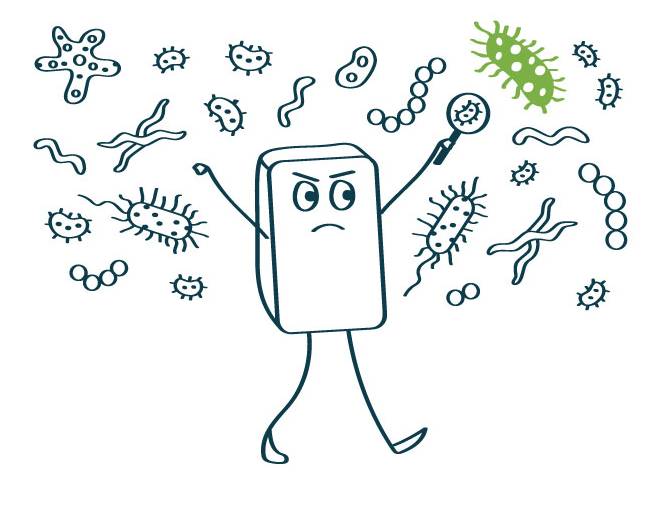
THE 10 WORST BACTERIAL NESTS IN THE HOME
> Sponges
> Toothbrushes and toothbrush holders
> Computers, tablets and phones
> Door handles and light switches
> Toilets

When we ask ourselves this question, we all have in mind an idea of the places or objects we think are the dirtiest in our home. But do we know exactly what these refuges for bacteria and other microbes are? Read on, as experts in cleaning products, we tell you all about it!

Sponges
Used for washing up and/or cleaning, sponges can contain just as many microbes as toilets! Sponges are ideal places for bacteria, which we then spread on our dishes, surfaces or clean objects... thinking we're cleaning them!
The right reflexes?
Change your sponges regularly and wring them out well after each use. Moisture encourages the growth of bacteria.
You can also put the sponge (well damp and without any metal parts) in the microwave for 2 minutes, remove it (taking care not to burn yourself), run it under cold water and it'll be as good as new! Some microfiber sponges are also suitable for the washing machine, and last much longer.
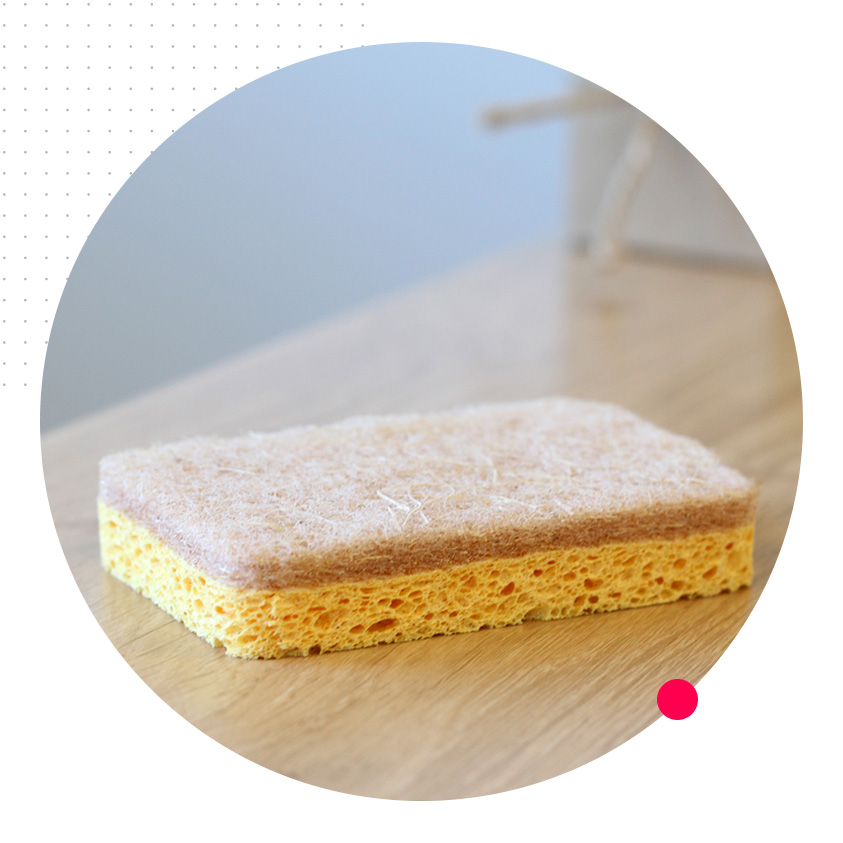

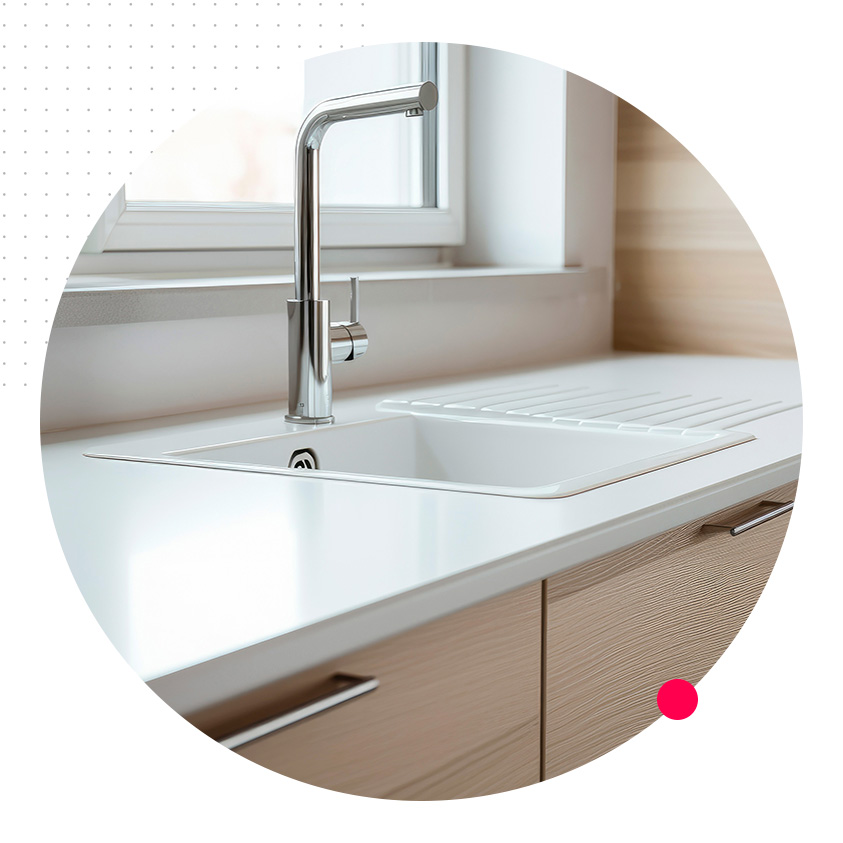
Kitchen sinks and worktops
Among the worst performers, the sink isn't far behind! It's in constant contact with food, especially raw food, when you wash your hands after touching eggs or meat, for example. Don't put off cleaning your sink until tomorrow, and don't leave your dirty dishes inside for too long - this will considerably reduce the growth of bacteria!
The right reflexes?
Clean your sink regularly with a multi-purpose or special kitchen cleaner, and disinfect it once a week with an effective bleach-based product, for example.

Bathtubs and shower trays
Would you like to bathe in bacteria? It may come as a surprise, but bathtubs and shower trays are the perfect place for bacteria. Accumulated on the wall of the bath or shower tray, they can form a tough, adhesive film called "biofilm". This biofilm can lead to the risk of infection, and needs to be removed regularly.
The right reflexes?
Rinse your bathtub immediately after each use to prevent bacteria build-up. And don't forget to thoroughly clean your bathroom every week.
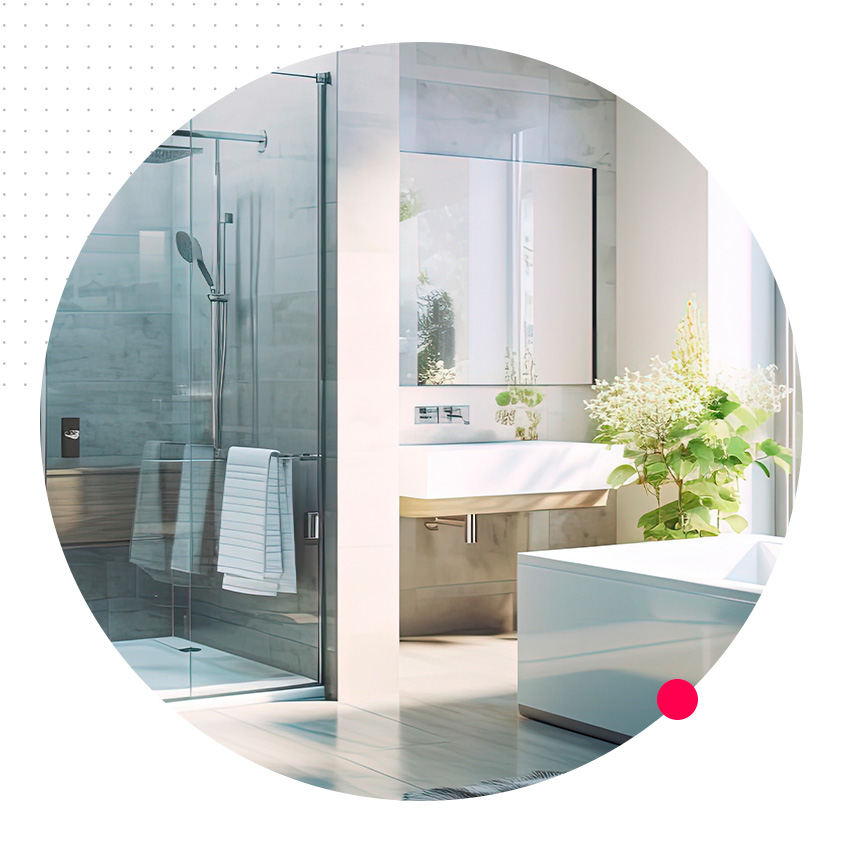

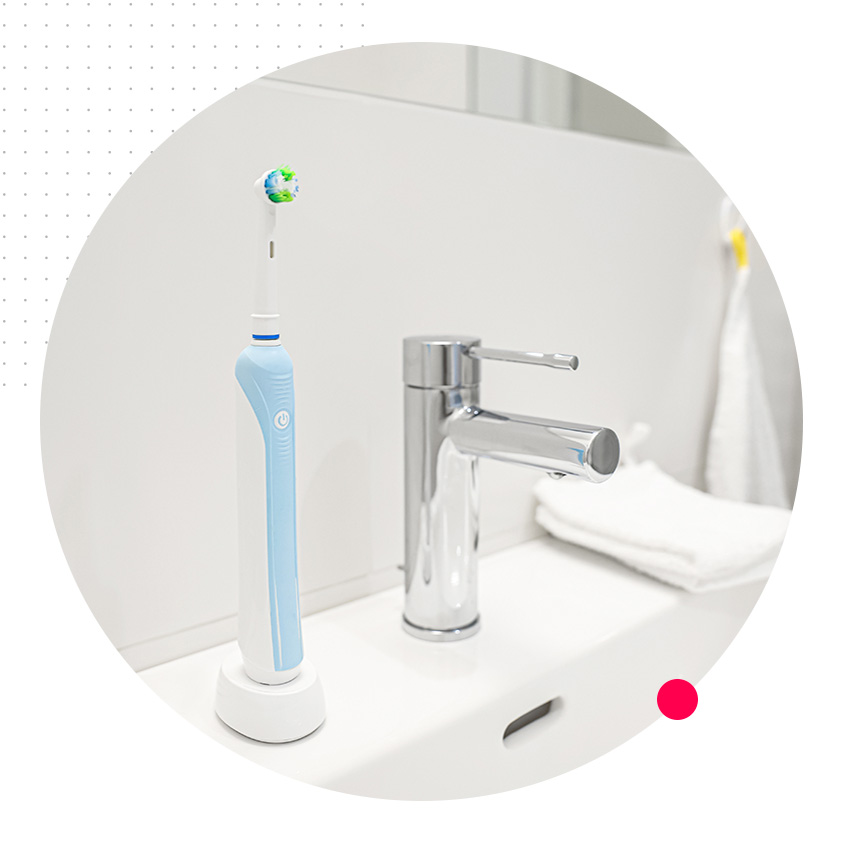
Toothbrushes and toothbrush holders
Toothbrushes and toothbrush holders are ideal breeding grounds for germs and other microbes, and should be cleaned regularly. Toothbrushes should be changed every 3 months or less.
The right reflexes?
After each use, rinse your toothbrush under running water to remove any food or toothpaste residue, and let it air dry. Electric toothbrush holders and toothbrush pots should also be cleaned and disinfected regularly. If you've been ill, change your toothbrush once you've recovered!

Cutting boards and knives
Used to prepare food for cooking or eating raw, cutting boards and knives concentrate microbes that can be responsible for cross-contamination. The same board used to cut raw meat can subsequently contaminate raw vegetables, if it has not been carefully cleaned between each stage. The same applies to the knife used, which must be changed or cleaned between each type of food (vegetables, fruit, meat...).
The right reflexes?
Choose a tempered glass cutting board rather than a plastic or wooden one. It's more hygienic and easier to clean - and dishwasher-safe!
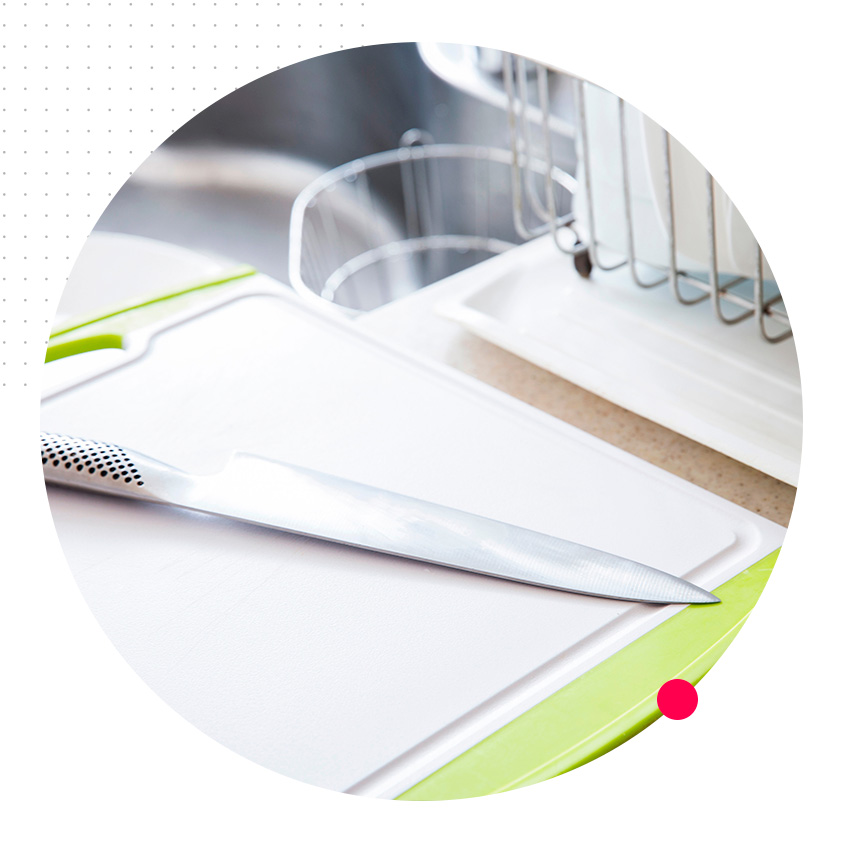

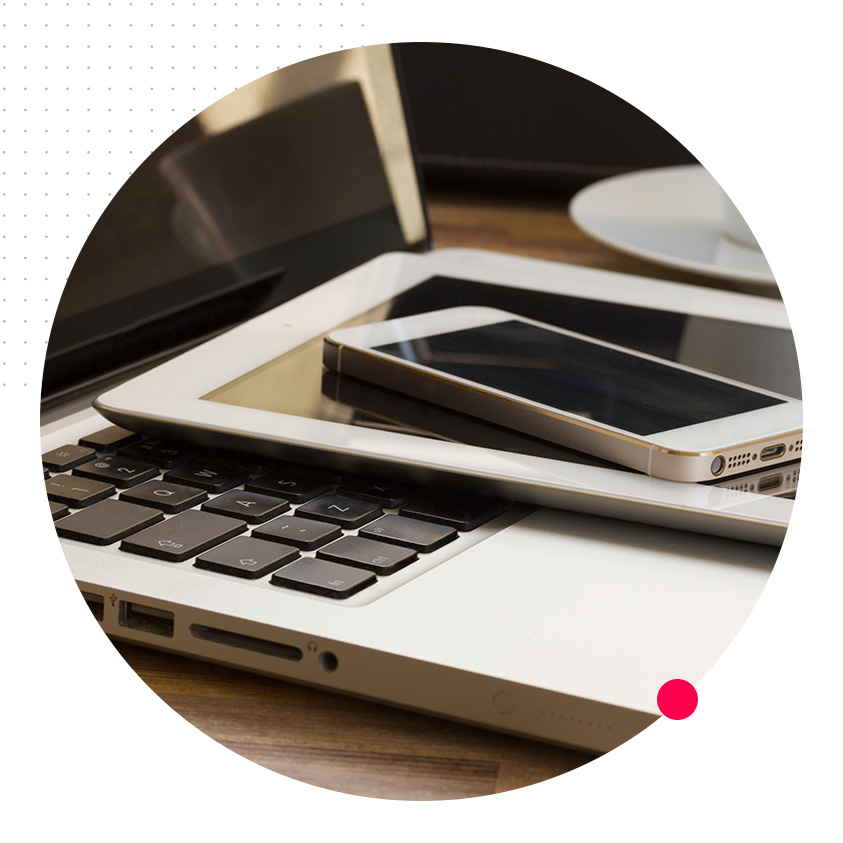
Computers, tablets and phones
According to a study by researchers at the University of Arizona, computer keyboards contain "400 times more bacteria than a toilet seat". That's a lot, isn't it?
Certain practices, such as eating close to your computer, will encourage the proliferation of micro-organisms on your work or leisure tool.
The touch screens of our tablets and smartphones are not spared either: we touch them more than a hundred times a day!
The right reflexes?
Don't eat on your desk. Not only will you avoid contaminating your keyboard, you'll also be able to disconnect during a real break! Remember to clean and disinfect your phone regularly, especially after touching a surface that is a source of bacteria, such as public transport. Use a soft cloth lightly soaked in a cleaning solution (such as window cleaner) or disinfectant. Bleach, alcohol or abrasive products are not recommended.

Door handles and light switches
Without realizing it, we touch door handles and light switches many times a day, and they are real vectors of diseases such as influenza, coronavirus and other respiratory viruses.
The right reflexes?
It goes without saying, but regular hand-washing, especially in the event of illness, will limit contamination! And of course, weekly cleaning of door handles, cupboards and electrical appliances will reduce the presence of bacteria and other microbes.
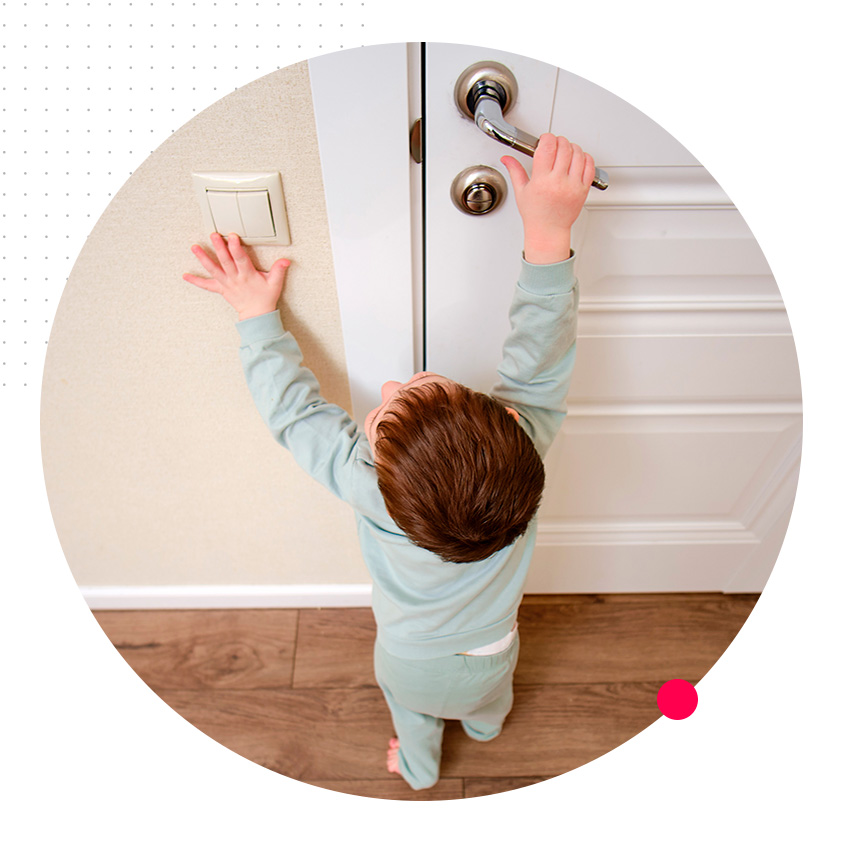

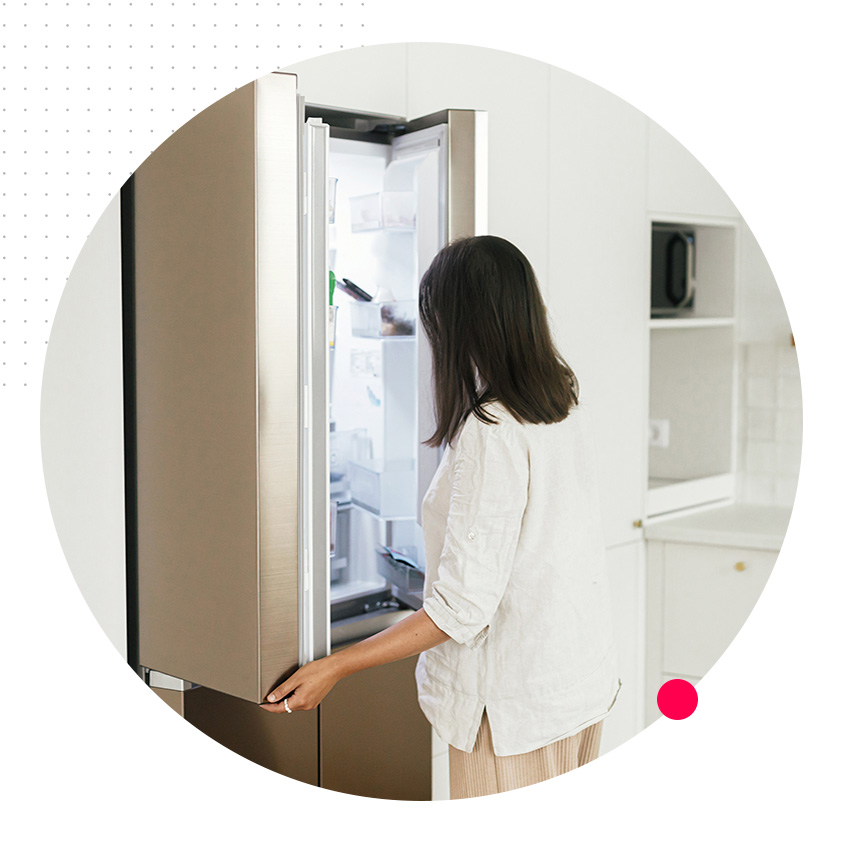
The fridge
Bacteria love a place that's open several times a day, where packages from outside can bring visitors. What they particularly appreciate are food leftovers that would otherwise have remained in the open air.
The right reflexes?
Remove unnecessary packaging (cardboard around yoghurts, etc.) and systematically place food scraps in airtight containers.

Garbage cans
Garbage cans are particularly dirty places: whether in the kitchen, bathroom or toilet, they are veritable nests of germs!
The right reflexes?
The right reflexes? Don't hesitate to clean your garbage cans regularly with soapy water and disinfect them immediately afterwards. With Eurotab's bleach tablets, it's easy: 1 or 2 tablets in the garbage can, add water, leave to work, rinse, and you've got a perfectly disinfected garbage can!
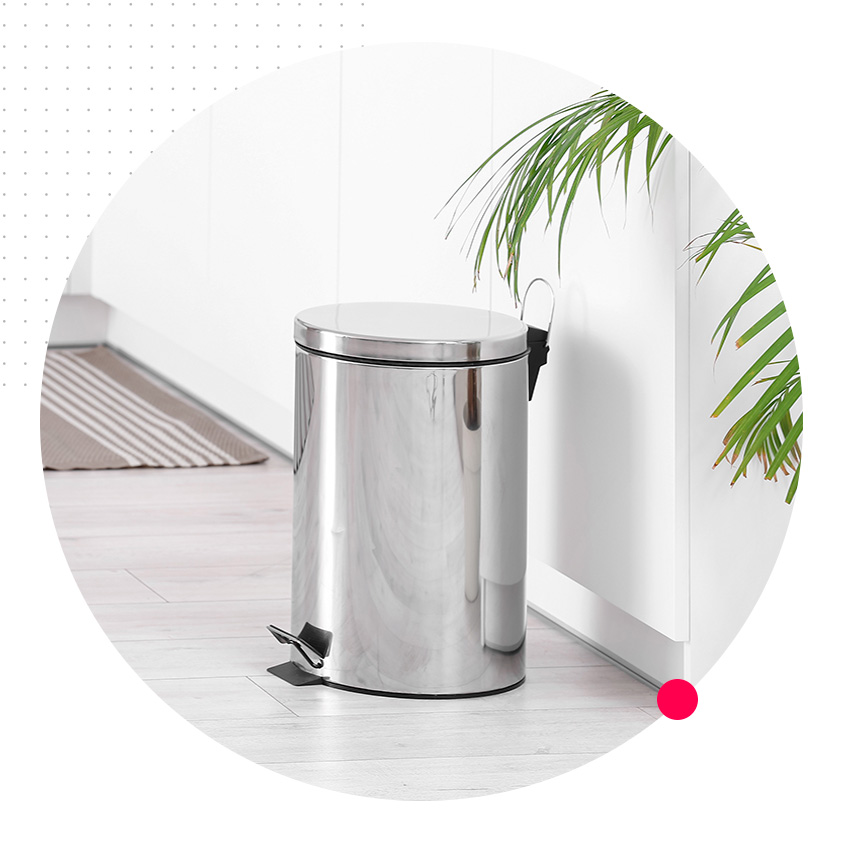

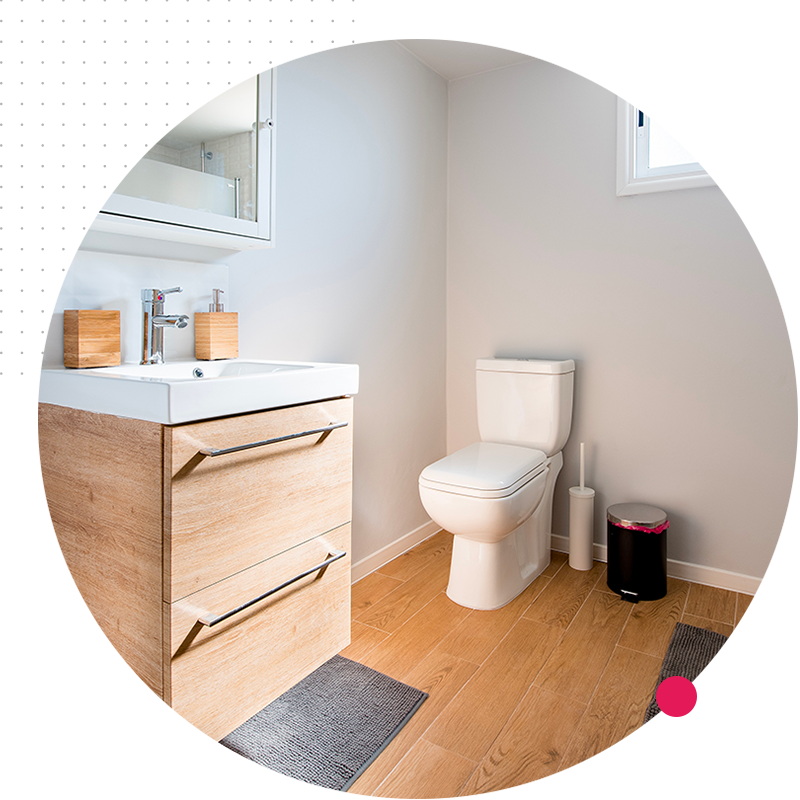
Toilets
The big winner on this list is, unsurprisingly, the toilet, home to a large number of bacteria and microbes.
The right reflexes?
There's no secret to cleaning them regularly, and always lower the flap before flushing. When you flush the toilet, bacteria-carrying droplets are projected over the bowl and can remain in suspension for several minutes. These droplets can contaminate surfaces around the toilet. By closing the flap, you block a large proportion of these suspended particles.
HOW TO ELIMINATE BACTERIA IN GENERAL ?
Remember to regularly disinfect surfaces and objects with a disinfectant, with or without bleach, and to air spaces every day. You should also regularly check the humidity in your home, as bacteria and microbes are particularly fond of this environment.



